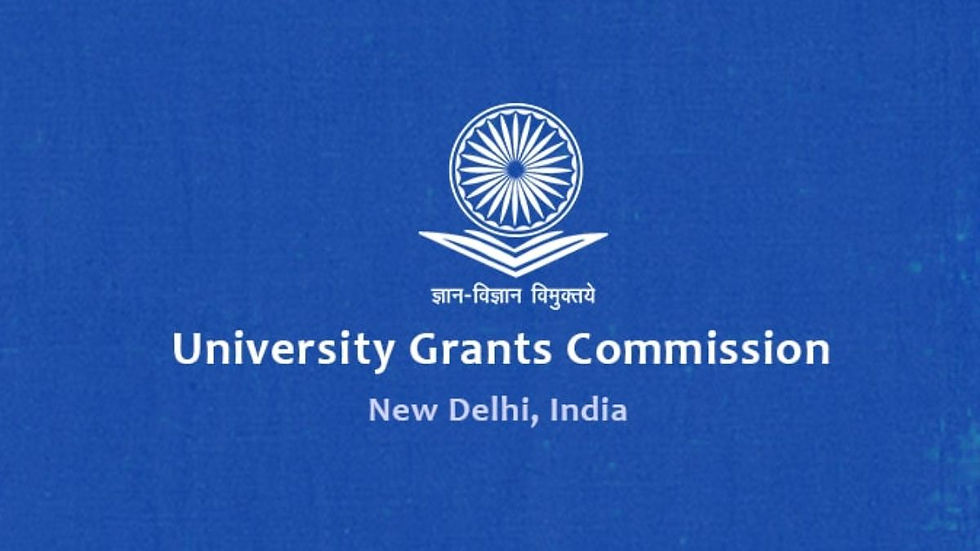UGC Introduces New Foreign Degree Equivalence Norms to Align Indian Education with Global Standards
- vinod sharma
- Apr 8
- 3 min read

New Delhi: In a landmark step towards internationalising India’s higher education system, the University Grants Commission (UGC) has implemented new regulations for the recognition and equivalence of foreign qualifications. Titled the UGC (Recognition and Grant of Equivalence to Qualifications Obtained from Foreign Educational Institutions) Regulations, 2024, the framework was officially notified on March 22, 2024, and came into immediate effect.
The move, aligned with the National Education Policy (NEP) 2020, aims to streamline the process for evaluating academic qualifications earned overseas, offering a transparent and technology-driven system to address delays and uncertainties previously faced by students returning from abroad.
A Structured Approach to Global Recognition
UGC Chairman Mamidala Jagadesh Kumar emphasised that the new framework brings much-needed clarity for students with international credentials. “Many students return with international qualifications to seamlessly integrate into India's higher education system or workforce. Such students need a structured procedure to evaluate foreign credentials without unpredictable delays and procedural ambiguity,” he said.
With the increasing mobility of students and a rise in international academic collaborations, Indian institutions are witnessing a growing number of applicants holding foreign degrees. The new regulation provides a uniform equivalence framework that defines eligibility criteria, outlines the application process, and establishes the responsibilities of recognised authorities.
Key Features of the 2024 Regulation
Under the revised guidelines, equivalence will be granted to foreign qualifications that meet the following four broad conditions:
The degree must be awarded by a recognised foreign institution.
It must be delivered through full-time, in-person learning (with exceptions for doctoral and post-doctoral programs).
It should not be an honorary qualification.
It must not be obtained through a franchise arrangement or a pathway programme.
Qualifications fulfilling these criteria will no longer require approval from regulatory bodies such as the All India Council for Technical Education (AICTE) or the National Medical Commission (NMC).
Moreover, the regulation supports flexibility in recognising joint degrees and dual degrees earned through collaborative agreements between Indian and foreign institutions, provided such programs are approved by the relevant statutory authorities.
Technology-Driven and Transparent Mechanism
To enhance accessibility and efficiency, UGC has introduced a dedicated online portal for students and institutions to submit applications and seek clarifications. The portal will be backed by a committee to address disputes and special representation cases, ensuring swift and fair decision-making.
“UGC has developed a transparent, technology-driven mechanism for recognizing foreign qualifications from schools and higher education institutes,” Kumar said. “This move is crucial given NEP 2020’s vision of transforming India into a global study destination.”
Wider Impact on Internationalisation
The regulation not only simplifies academic transitions for Indian students returning from overseas but also positions Indian institutions as attractive destinations for international learners. By removing long-standing barriers in recognizing global qualifications, UGC seeks to build a more inclusive and competitive higher education landscape in India.
“If Indian institutions are to attract international students, we must ensure fair recognition of degrees earned abroad,” Kumar added. “UGC has taken a decisive step through this significant reform toward making India's higher education system more inclusive, competitive, and future-ready.”
Implementation and Scope
The regulation applies to all foreign qualifications at the secondary, senior secondary, and higher education levels. However, professional qualifications governed by specific statutory councils will continue to be assessed by those respective bodies.
With this comprehensive reform, the UGC has addressed a critical gap in India’s academic framework, paving the way for a globally integrated and future-focused higher education system.





Comments